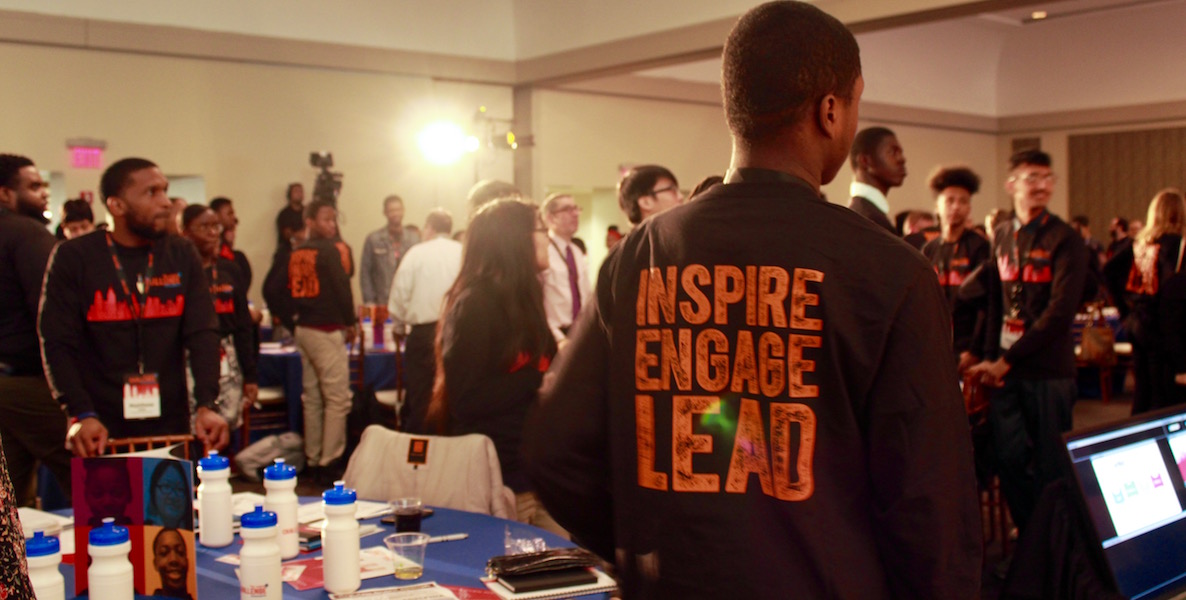Philadelphia Mayor Kenney has until March 20th to appoint a local school board to replace the School Reform Commission. A new era is about to begin.
The nomination process was thoughtfully organized: a 13-member nominating group, a number of informational meetings throughout the city, a review process with a timeline, and a public listing of the 27 final nominees.
Be Part of the Solution
Become a Citizen member.The 13-member nominating board went through 500 applications, whittled them down to 80 persons to interview and then voted the final 27. It is now up to the Mayor. The Mayor wanted nominees to possess: organizational acumen, a commitment to education, a commitment to diversity, inclusion, and community empowerment, ethical behavior and integrity.
The characteristics Kenney put forward are necessary, but not sufficient, for the difficult governance tasks. They are threshold qualities and I assume interviews probed more deeply into the specific challenges of the District and how candidates met the requirements.
Here are the four questions I would pose to the nominees:
QUESTION ONE: What in your past experience should give us confidence that you are up for this job of governing a $3 billion corporation with chronic structural deficits?
The Mayor’s budget strategy calls for tax increases over the next five years to plug holes in projected deficits for the District. But taxpayers will want assurance that there are also reasonable management disciplines being applied to the task: re-thinking legacy systems, more creatively managing real estate assets, and revisiting long-term financial liabilities.
The Philadelphia School District is one of the largest public budgets in Pennsylvania. It is plagued by unfunded pension liabilities that eat away at each new budget, reducing the impact of new tax revenue in support of classroom instruction. The stranded costs created by charter school growth make operating efficiency and balance sheet re-structuring important. If you lose 30 percent of your traditional customers you must adjust the central infrastructure built for 200,000 students.
The job of board members will be to understand the complexity of the district as a whole, but mediated through the parts, and figure out the best way to manage accordingly. Otherwise we will continue to manage a 20th century artifact that no longer aligns with on-the-ground reality.
The board will never (nor should it) be completely driven by business leaders. But it is striking that no major business leaders were nominated among the final group of 27. Perhaps they did not step forward given the time commitment or the reputational risk. After all, school board meetings and twitter storms can take a toxic turn. Or perhaps a nominating committee dominated by public, civic and academic leaders did not surface this as a priority. We do not know. But the absence of significant business involvement within governance is noticeable.
The District has a stronger financial staff than in prior regimes when accounting and finance backgrounds practically seemed optional. But the role of a board is to still exercise governance fiscal oversight. They must be able to take apart budgets and long-term projections and ask questions about the sustainability of the overall enterprise. They have to operate on a strategy not reducible to assumptions about tax increases or state aid assumptions. Otherwise, why have a school board? Yes, the District is underfunded, but it also underperforms in areas such as data analytics, human resources, technology, and communication.
QUESTION TWO: Can you oversee, or even imagine, an organizational system that requires a networked governance strategy and culture?
This is not your grandmother’s school district. The school district as it evolved over the past two decades is not amenable to vertical control in the traditional sense. And this is not just a matter of union contracts, government regulations, or political interference. That is only the starting point.
Power is distributed horizontally among schools in new ways: one out of three students attend charters and the largest charter networks are their own micro-systems; an increasingly large number of students attend magnet schools, some of which are district run and others based on contracts with private (generally nonprofit) operators; and then there are traditional neighborhood based schools. The system is increasingly a choice system comprised of charters and magnets.
![]() Charter versus district status no longer determines a choice versus a neighborhood-based option. The growth of Renaissance charters like Mastery, which function more as neighborhood schools than the new magnet innovation district schools, is a case in point. The old organizational playbook for choice and anti-choice combatants no longer works as it did a decade ago.
Charter versus district status no longer determines a choice versus a neighborhood-based option. The growth of Renaissance charters like Mastery, which function more as neighborhood schools than the new magnet innovation district schools, is a case in point. The old organizational playbook for choice and anti-choice combatants no longer works as it did a decade ago.
As the system has become a collection of self-organized schools and school networks, constituencies form around the parts, more than the district as a whole. The job of board members will be to understand the complexity of the district as a whole, but mediated through the parts, and figure out the best way to manage accordingly. Otherwise we will continue to manage a 20th century artifact that no longer aligns with on-the-ground reality.
QUESTION THREE: Can you handle your new friends and your eventual antagonists?
Thirty-five years ago, as a community organizer in Logan, a ward leader told me that the school district to him was helping parents get into a school and deciding who got the food contract. This was his way of saying he was not up on the latest thinking about education models.
If not handled properly, the role of a board member can become that of an old-fashioned ward leader focused on constituent services and political intrigue. Pressure will come from school leaders, unions, politicians, parents, and businesses. The District is a $3 billion dollar economic development and jobs machine. Some political appointees to boards in the city and state love the real or perceived power that comes from the appointment. Others prefer to govern.
There is nothing wrong with lobbying for support as long as it does not interfere with the ability of staff and board to make reasoned (and fact based) decisions and have honest and open deliberation. Some people can handle this and others cannot. For a brief time I was on the board of the Pennsylvania Housing Finance Agency; an organization that I greatly admire. When tax credit allocation time came around, I suddenly had new friends. I noticed board members dealt with this differently: some automatically deferred to staff and others made a side business from their perceived influence.
![]() As with the School Reform Commission, the new District board will be subject to intense pressure on contracts and decisions regarding opening and shutting schools. Many of the new appointees will be aware of who pushed their names to the finish line and wonder to what extent they need to defer to their sponsor. All of this begins to blur the lines between board and staff, city government and school district, and a board as an operating unit versus a board as interest groups.
As with the School Reform Commission, the new District board will be subject to intense pressure on contracts and decisions regarding opening and shutting schools. Many of the new appointees will be aware of who pushed their names to the finish line and wonder to what extent they need to defer to their sponsor. All of this begins to blur the lines between board and staff, city government and school district, and a board as an operating unit versus a board as interest groups.
I am not speaking about ethics and integrity in the narrow sense of someone breaking a law or intentionally subverting regulations. The people being nominated are better than that. This is a question regarding whose interests they will be able to represent. If asked, everyone will say the students and parents. A good answer indeed. But they also have to represent the taxpayers within the city and state. And this means that they have to govern in very intentional ways, as free as possible from external influences that may conflict with the general good.
It is striking that no major business leaders were nominated among the final group of 27. Perhaps they did not step forward given the time commitment or the reputational risk. Or perhaps a nominating committee dominated by public, civic and academic leaders did not surface this as a priority. We do not know. But the absence of significant business involvement within governance is noticeable.
On the antagonist side, the problem is worse. Some board meetings over the past several years have become disruptive to the point of intimidation. On the one hand, this is the nature of democracy; it is messy and heated. On the other hand, board members will need to create an atmosphere that is more like the British parliament —contentious but civil—than the storming of the barricades.
As in all things, social media sometimes does not help. It is as likely to spread heat than light, devolve into anonymous name-calling, and become a substitute for thoughtful journalism.
QUESTION FOUR: Oh yes, education: where are you on all of that?
I left this question for last because while it should be the first order of business, it so often gets pushed aside save some platitude about children and the future. When the Mayor says that he wants people with a commitment to education this means nothing unless we have lots more information. The explosion of educational choices happened because of discontent with available options.
Education can be faddish (e.g. community schools, student centered learning, flipped classrooms) and many university level education departments are little more than money mills selling accreditation without rigorous training in either content or teaching skills. They may house good scholars but they are not high quality clinical resources.
![]() We know what works with respect to good teaching and early childhood education and parenting but we are often unable to incentivize, pay, or regulate those inputs. The upper middle class can use private tutors, educational summer camps, private schools, a social network of professional advisors, and the ability to live in districts able to spend more per child than in Philadelphia.
We know what works with respect to good teaching and early childhood education and parenting but we are often unable to incentivize, pay, or regulate those inputs. The upper middle class can use private tutors, educational summer camps, private schools, a social network of professional advisors, and the ability to live in districts able to spend more per child than in Philadelphia.
So how can a city like Philadelphia that educates so many low-income children support their success? There are no simple or easy answers but if someone asked me I would discuss the following:
- How to drive more money to high quality early childhood education. There is no short cut here. It costs money and will require public, private, and civic support and a likely major tax referendum. I am not a fan of the soda tax because I think it is a poor tax strategy for an industry \ getting squeezed on too many sides. But I am a fan of paying for universal childcare options that are high quality and well regulated.
- Insisting that we use data as a professionalizing tool to support teachers. When the teachers unions move from an industrial model (sameness based on time) to a craft model (apprentice to master status based on performance) they will find more support. Yes, we probably test too frequently and rely on those scores too uncritically. But the answer is not to retreat from data and evaluation. It is to use it for accountability and not punishment.
- Creating a differentiated post high school career and college guidance system that helps students work on skills and career pathways through internships and community college relationships prior to graduating high school. The era of thinking a four-year college degree makes sense for everyone has to end. We have to reinvent vocational education and give it the status it deserves. The models are slowly emerging to support this within Philadelphia and elsewhere but we are far to slow and timid to adopt changes.
- Embracing technological innovation as instruction tools. Our schools have to be wired for success and we must train teachers to use technology in ways that help them to deal with classrooms that have learners at very different stages of development. The revolution in educational technology is happening today but few districts have the expertise to know what works and what does not.
Your list may be different than mine. But if you are coming aboard the new district’s board, I hope you have a list and I hope it has some reality in evidence and practice. I hope you are not there to protect the status quo or support a particular constituency over others. Because that way of governing—dividing the world into camps—is not working too well.
Photo Credit: Spc. Paige Behringer, 1st BCT Public Affairs, 1st Cav. Div.






